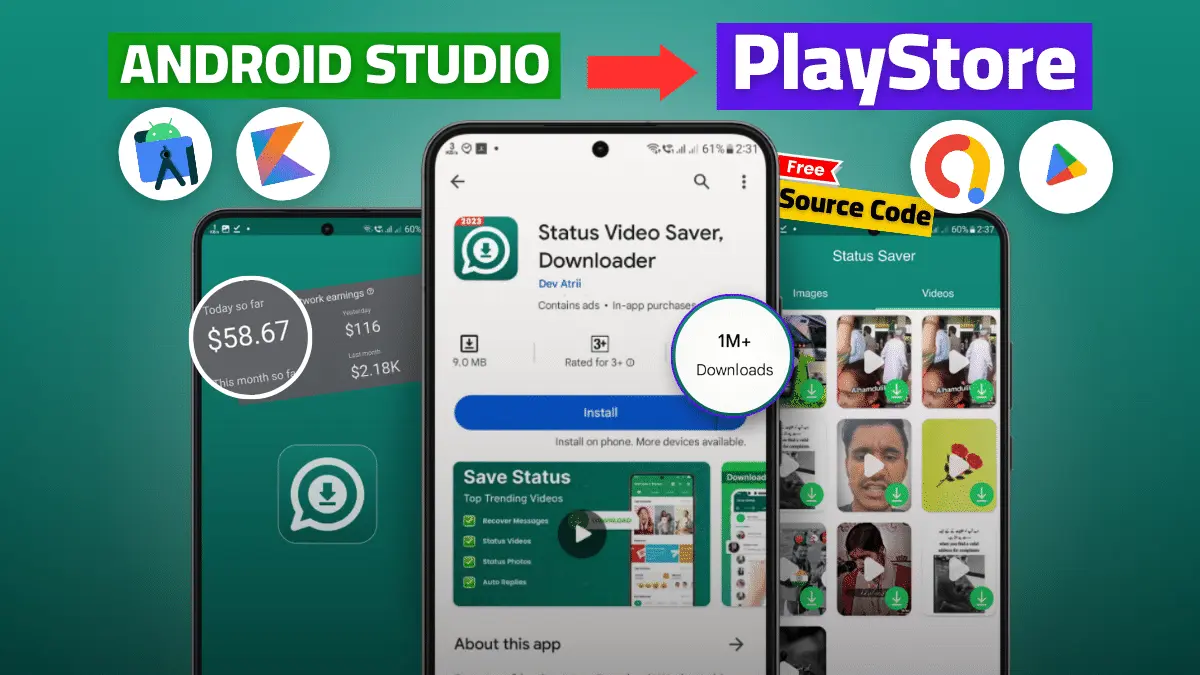WhatsApp statuses are a popular way to share moments with your friends and family. However, these statuses tend to disappear after 24 hours. If you want to save your favorite statuses, or those of your contacts, you can create a WhatsApp Status Saver app using Kotlin and the Model-View-ViewModel (MVVM) architectural pattern. In this article, we will guide you through the process of building such an app step by step.
Setup Project
To get started first let’s setup project. First of all include the following libraries in project
implementation("com.jsibbold:zoomage:1.3.1")
implementation("androidx.media3:media3-exoplayer:1.1.1")
implementation("androidx.media3:media3-exoplayer-dash:1.1.1")
implementation("androidx.media3:media3-ui:1.1.1")
implementation ("androidx.documentfile:documentfile:1.0.1")
implementation ("com.github.bumptech.glide:glide:4.15.1")
implementation("androidx.swiperefreshlayout:swiperefreshlayout:1.2.0-alpha01")You can also download initial project (Click here to download).
Function to save status
fun Context.saveStatus(model: MediaModel): Boolean {
if (isStatusExist(model.fileName)){
return true
}
val extension = getFileExtension(model.fileName)
val mimeType = "${model.type}/$extension"
val inputStream = contentResolver.openInputStream(model.pathUri.toUri())
try {
val values = ContentValues()
values.apply {
put(MediaStore.MediaColumns.MIME_TYPE, mimeType)
put(MediaStore.MediaColumns.DISPLAY_NAME, model.fileName)
put(
MediaStore.MediaColumns.RELATIVE_PATH,
Environment.DIRECTORY_DOCUMENTS + "/" + getString(R.string.app_name)
)
}
val uri = contentResolver.insert(
MediaStore.Files.getContentUri("external"),
values
)
uri?.let {
val outputStream = contentResolver.openOutputStream(it)
if (inputStream != null) {
outputStream?.write(inputStream.readBytes())
}
outputStream?.close()
inputStream?.close()
return true
}
} catch (e: Exception) {
e.printStackTrace()
}
return false
}
